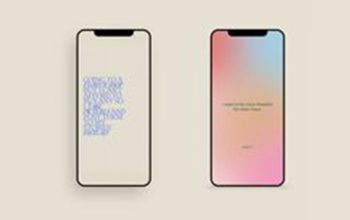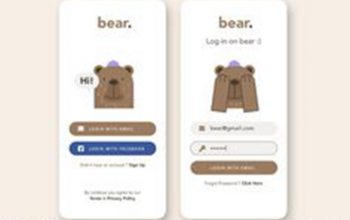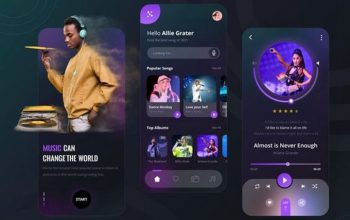New Google Play Developer insurance policies began to get enforced as of the twenty ninth of September 2021. That brings alongside two main adjustments when it comes to App Retailer Optimization: Lowering the app title to 30 characters (as a substitute of fifty) and Refusing common key phrases corresponding to “finest, “free”, “high”, “new” identical as for CTAs corresponding to “obtain now”.
- Table of Contents
- Google Play Policy Changes
- android app store rankings
- google play store algorithm
- app promotion strategy
Nonetheless, there was no exhausting minimize on that date when it comes to app title size. This made some apps and video games nonetheless stick with the 50 characters. We’ve to confess that on the first sight it sounds tempting to nonetheless use the 50 characters as a way to profit from the precious character house for key phrase rankings. However how does Google see it and what’s the impression on visibility?
Has Google punished apps that aren’t compliant with the brand new Google Play insurance policies?
We analyzed a number of apps and video games on the Google Play Retailer to see whether or not neglecting the rules had any impression on visibility. To this point evidently outcomes differ. Thus, it nonetheless stays unknown how precisely Google will go about apps that don’t observe the brand new insurance policies.
The app “Viber Messenger” is an efficient instance of this as it’s killing two birds with one stone. They’re nonetheless utilizing greater than 30 characters within the app title within the German Google Play Retailer. On the identical time, they’re utilizing forbidden value key phrases (“kostenlos” / “free”) in metadata for German and English (UK) localization. Let’s check out how their essential key phrases developed after Google coverage adjustments acquired enforced!
The key phrase “chats” remained comparatively secure on place 2 in Germany. But we may observe extra fluctuations within the interval earlier than the coverage change. Therefore it appears the rules haven’t had any actual impression on this key phrase.
As seen within the key phrases characteristic in App Radar, the app “Viber” skilled a drop as of the start of November for the key phrase “messenger”. That is round a month after the official adjustments from Google Play Retailer entered into the pressure. Due to this fact, it’s tough to inform if Google truly penalized them due to not being compliant with the brand new retailer coverage. The opposite impression elements might be additionally concerned right here (e.g. a drop in conversion price, elevated crash price, lowered avg. star ranking, and so on.).
One other attention-grabbing instance, as a part of our evaluation, is the app “Thirty One”. They decreased the size of their app title within the Netherlands about two weeks after Google enforced the brand new insurance policies. You possibly can simply see these metadata adjustments for any app on the app timeline in App Radar device.
Now the query is: has Google taken any measures to penalize the app’s visibility whereas it was nonetheless stay with the 50 characters? Let us take a look at the key phrase rating evolution beneath supplied by App Radar’s key phrase characteristic. It appears to be associated to extra total fluctuations, however no clear correlation to the coverage change may be confirmed.
Nonetheless, after they decreased the app title to 30 characters evidently Google began adapting to the change which resulted in greater drops. Based mostly on different analyses, we anticipate the rating to go up once more after some stabilization time.
What occurred to apps that also use forbidden key phrases in Google Play Retailer?
Apps that also use prohibited key phrases throughout the quick description have thus far principally been flagged by Google. These app builders acquired a notification throughout the Google Play Console. The instance beneath exhibits the warning obtained from Google for having “free” included within the quick description.
Google said that the restrictions round sure key phrases will apply for the app title, developer title, and icon. However now evidently Google is not permitting such key phrases anymore throughout the entire metadata.
As for the lengthy description, we’ve noticed that the phrase “new” was the explanation why the app launch acquired rejected:
It nonetheless stays unclear how Google will go on with penalizing apps that don’t meet the brand new standards. Nonetheless, the title seems to have an important weight primarily based on the warning description throughout the Google Play Console:
Plainly Google hasn’t began sanctioning it but when an app exceeds the 30 character restrict. Even on the Google Play Console, the title discipline nonetheless permits for 50 characters. Now there may be solely a notification that the app could not adjust to the upcoming adjustments to the metadata coverage. Nonetheless, sure app builders say that a few of their smaller apps and video games have been suspended due to using “free” and “finest” within the app title.
For apps that don’t respect the brand new pointers throughout the quick description, the warning within the Google Play Console states a doable lack of promotion. Therefore the penalization thus far appears much less strict in comparison with the app title.
What occurred to apps that used forbidden graphics in icons?
The rule clearly states that key phrases that suggest retailer efficiency, promotion within the icon, title, and developer title are refused. Nonetheless, there are lots of apps and video games on the market that haven’t tailored it but as seen within the examples beneath:
“Huuuge Video games” with their Free Slots Casinos Sport is an efficient instance of neglecting the insurance policies. They nonetheless use “high” in addition to “free” of their app icons and moreover of their app titles.
By way of visibility throughout the Google Play Retailer, no clear correlation with the coverage adjustments might be noticed thus far. They haven’t been featured earlier than the coverage change nor after. Rankings on essential key phrases have been fluctuating for a while, which might be although associated to the coverage change.
What occurred to apps which have tailored their retailer itemizing on time?
A whole lot of apps adopted the rules and up to date their retailer itemizing in line with the brand new Google Play Insurance policies on time. Amongst them is “myposter”, who shortened its app title to 30 characters on the tenth of September (Google Play, Germany).
So as to take action, “myposter” eliminated “Fotos drucken” from the app title within the German Google Play Retailer as seen in App Radar’s app timeline.
The key phrase mixture “Fotos drucken” hasn’t skilled a powerful destructive impression on rating after eradicating it from the app title. Adopted by a short-term drop on September twenty eighth, the key phrase mixture stabilized once more as of September twenty ninth. This was purported to be the go-live date of the brand new Google Play Retailer coverage.
For the extra common key phrase “fotos” a extra vital drop adopted shortly after the coverage change. This might be an indication of the algorithm adapting to the adjustments. Nonetheless, after some fluctuations, “myposter” achieved for the key phrase “fotos” even increased than common place in comparison with the earlier interval.
This results in two conclusions:
On the one hand, it is likely to be that Google appreciated them being early adapters and respecting the 30 characters restrict at an early stage. For the key phrase “fotos” with increased search quantity and better issue, it took some extra time to stabilize whereas the algorithm was most likely making an attempt to adapt to the adjustments.
Alternatively, evidently the elevated depend of repetitions throughout the metadata helped to buffer the lack of the key phrase throughout the app title. Whereas eradicating the key phrase mixture from the app title, “myposter” included the given key phrase extra usually within the lengthy description.
Abstract of ASO Google Play Retailer Coverage Modifications in 2021
From the twenty ninth of September 2021, new ASO Google Play Retailer insurance policies began to get enforced. The primary adjustments are making use of to meta description:
- Restrict the size of app titles to 30 characters (as a substitute of fifty)
- Prohibit common key phrases corresponding to “finest, “free”, “high”, “new” identical as for CTAs corresponding to “obtain now”
Some app builders have determined to adjust to the rules on time and never danger any injury to their app visibility. Nonetheless, others have chosen to go away their metadata unchanged till they see actual hazard.
The measures taken by Google are nonetheless unclear for now. Some apps that uncared for the rules misplaced visibility, others stayed kind of secure. It stays to be seen how strict Google will turn into sooner or later with turning these warnings into actual penalties.




